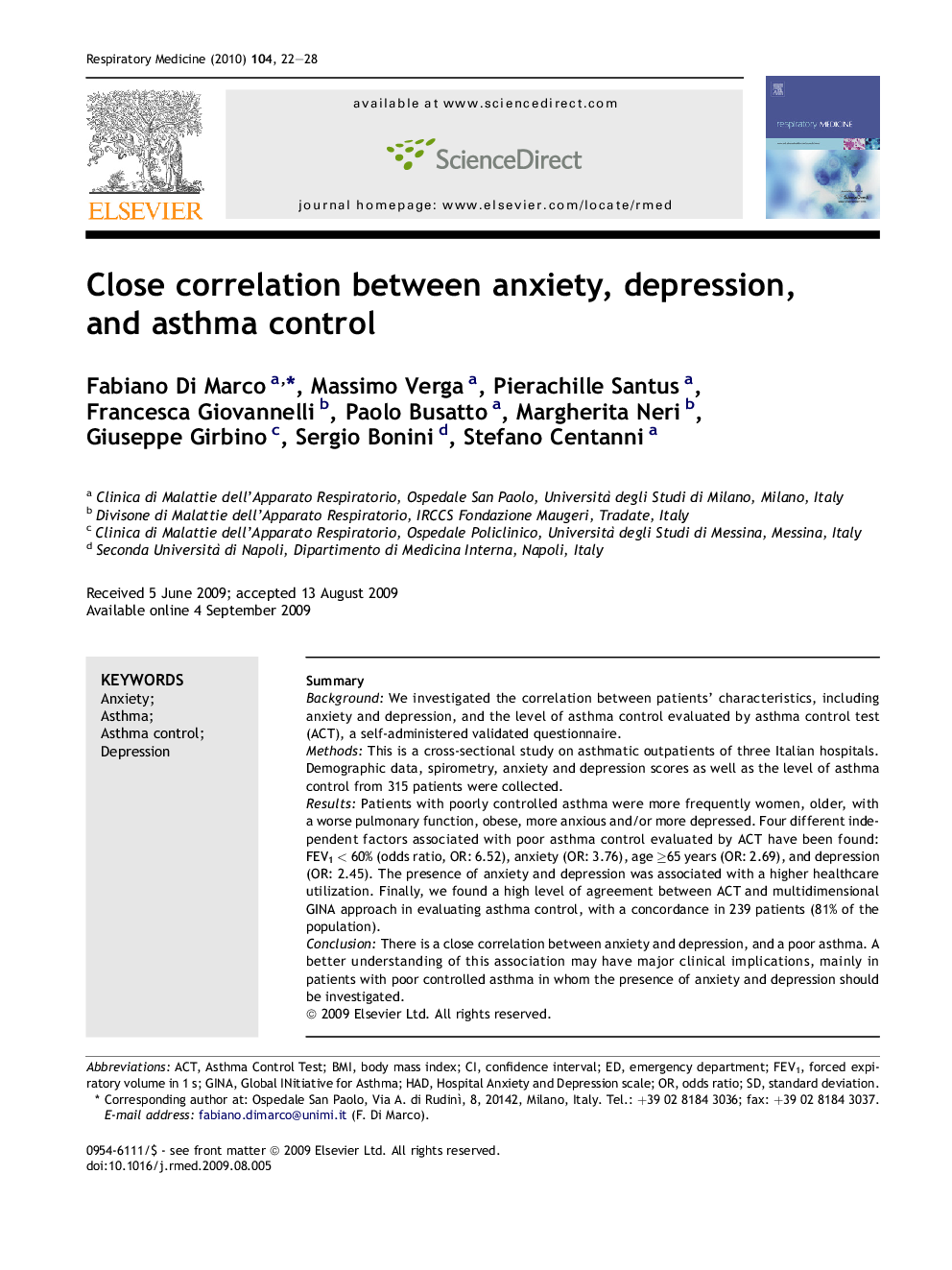| Article ID | Journal | Published Year | Pages | File Type |
|---|---|---|---|---|
| 4210714 | Respiratory Medicine | 2010 | 7 Pages |
SummaryBackgroundWe investigated the correlation between patients’ characteristics, including anxiety and depression, and the level of asthma control evaluated by asthma control test (ACT), a self-administered validated questionnaire.MethodsThis is a cross-sectional study on asthmatic outpatients of three Italian hospitals. Demographic data, spirometry, anxiety and depression scores as well as the level of asthma control from 315 patients were collected.ResultsPatients with poorly controlled asthma were more frequently women, older, with a worse pulmonary function, obese, more anxious and/or more depressed. Four different independent factors associated with poor asthma control evaluated by ACT have been found: FEV1 < 60% (odds ratio, OR: 6.52), anxiety (OR: 3.76), age ≥65 years (OR: 2.69), and depression (OR: 2.45). The presence of anxiety and depression was associated with a higher healthcare utilization. Finally, we found a high level of agreement between ACT and multidimensional GINA approach in evaluating asthma control, with a concordance in 239 patients (81% of the population).ConclusionThere is a close correlation between anxiety and depression, and a poor asthma. A better understanding of this association may have major clinical implications, mainly in patients with poor controlled asthma in whom the presence of anxiety and depression should be investigated.
